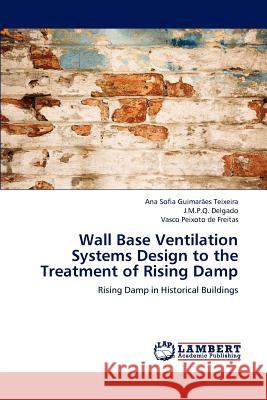Wall Base Ventilation Systems Design to the Treatment of Rising Damp » książka
Wall Base Ventilation Systems Design to the Treatment of Rising Damp
ISBN-13: 9783659158834 / Angielski / Miękka / 2012 / 124 str.
Rising Damp coming from the ground that, by capillarity, rises through porous materials is one of the main degradation causes of historical and ancient buildings, essentially, of its thick walls with heterogeneous composition. In the last few years, the Building Physics Laboratory - LFC of Porto University, Faculty of Engineering - FEUP, validated and analyzed the operating principle of a technique called "Wall Base Ventilation System" for the treatment of rising damp problems in historical and ancient buildings, consisting in enforce the circulation of air in the base of the walls of buildings with a relative humidity far from the saturation. This work presents the most common rising damp treatment techniques and the system's idea, develops a complex and complete systems design model, using a numerical simulation program and making some laboratory tests to get its validation and, finally, presents the implementation of a hygro-regulated system in a real building, a Portuguese historical Church.
Rising Damp coming from the ground that, by capillarity, rises through porous materials is one of the main degradation causes of historical and ancient buildings, essentially, of its thick walls with heterogeneous composition. In the last few years, the Building Physics Laboratory - LFC of Porto University, Faculty of Engineering - FEUP, validated and analyzed the operating principle of a technique called "Wall Base Ventilation System" for the treatment of rising damp problems in historical and ancient buildings, consisting in enforce the circulation of air in the base of the walls of buildings with a relative humidity far from the saturation. This work presents the most common rising damp treatment techniques and the systems idea, develops a complex and complete systems design model, using a numerical simulation program and making some laboratory tests to get its validation and, finally, presents the implementation of a hygro-regulated system in a real building, a Portuguese historical Church.











